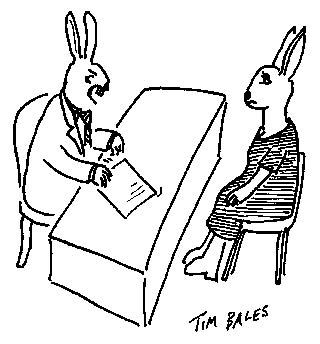The BBC’s Horizon is, amazingly, almost 50 years old and this week, in its The End of the World? Guide to Armageddon (BBC4, Thursday), it looked back at some of its scariest predictions.
The BBC’s Horizon is, amazingly, almost 50 years old and this week, in its The End of the World? Guide to Armageddon (BBC4, Thursday), it looked back at some of its scariest predictions. The media have always loved frightening us to death, and there are plenty of scientists ready to help.
The most recent, of course, is the greenhouse effect, and man-made global warming. I find myself an agnostic, lacking the absolute certainty possessed by many Spectator writers and, on the other side, the equal certainty of various scientists, politicians and activists. I know little about the science, but I do know a bit about human nature, and that makes me a part-time sceptic.
Mankind has always wanted to blame itself for the weather. Noah’s Flood, for example. Primitive tribes who thought that an exploding volcano meant that the gods were angry. Even a few years ago some bonkers Anglican bishop insisted that our floods indicated God’s anger at gay marriage. Might man-made global warming be simply a more sophisticated, post-enlightenment way of blaming ourselves again for our wicked, wicked ways? The scandal of the suppressed data at UEA fitted into this religious mould: like the Inquisition, some believe if the data doesn’t prove what faith requires, then it must be hidden.
Second, with irrational beliefs such as astrology, invariably the more data there is, the easier it is to prove what you already believe. Climate research produces millions of statistics every day. Simply select the ones that prove your point. The rest can be discarded as ‘irrelevant’ or ‘anecdotal’.
Third, scientists are as liable to peer pressure as anyone else. When a theory is held with total confidence by all one’s colleagues, then it takes a particularly brave and stubborn person to suspect the opposite. And such people are easily accused of heresy. Scientists are great at telling us what’s happening now. Their computer predictions are just that: predictions, and not always necessarily more reliable than Russell Grant’s.
They may be right. I wish I knew. But Horizon was fascinating about the need we have to petrify ourselves. A meteorite, of a size which wiped out the dinosaurs, could crash into us at any time, wiping out almost all species. Blow it to bits with a nuclear warhead before it hits us? Don’t be daft; the very smithereens would only make things worse. So we may have to melt it with sun power, sending a giant magnifying glass into space. OK?
Then the Canary islands are about to erupt, destroying a huge part of Europe in the tsunami. Not such a distant fear now, I suspect. Bird flu was going to wipe out a vast proportion of the world’s population. And terrorism; dirty bombs will make whole cities uninhabitable. The one that scares me more than global warming is Yellowstone National Park volcano. That erupts every 600,000 years and it’s overdue. Already the magma under the earth’s surface has begun to bulge like a boil on a teenager’s skin, sending the rest of the park on a downward slope before it blows and blots out the sun, so there are no crops. Anywhere.
In Wonders of the Universe (BBC2, Sunday) Brian Cox brings us nature that may be limitlessly powerful but is essentially benign. How lovely to think that we are made up of matter, atomic dust, from stars which may have died billions of years ago! The problem for the producers (who include the Discovery channel, which may account for occasional embarrassing simplicity) is that you can’t go and film on Proxima Centauri, like Michael Portillo taking a train to Whitby, and pictures of distant nebulae, while gorgeous, are somewhat samey, so you are stuck on earth, showing worshippers in Kathmandu, where they believe in reincarnation, or in an old prison in Rio, which is about to be demolished in the manner of an imploding star. Well, up to a point. Professor Cox does some first-rate smiling at the camera, but at times I wanted to yell, ‘I’m a busy man, Cox, old chap, cut the moody walks across Chilean mountains and just get on with it, will you?’
John Morton’s Twenty Twelve (BBC4, Monday) is about the Olympic Games next year. An open rip-off of The Office, it has all its own jokes, including young folk with no knowledge of anything more than two years old, people who communicate entirely in jargon, executives whose greatest skill is fooling themselves.
In the opening episode, the team has commissioned a countdown clock, from a self-admiring artist, which is actually a count-back clock and so useless, and in any case neither Boris nor Seb can make it to the clock-unveiling, because the traffic-flow guy has managed to bring London to a standstill. But it’s ‘OK, so, yah, OK’ as they say in the office. It’s very funny.





Comments